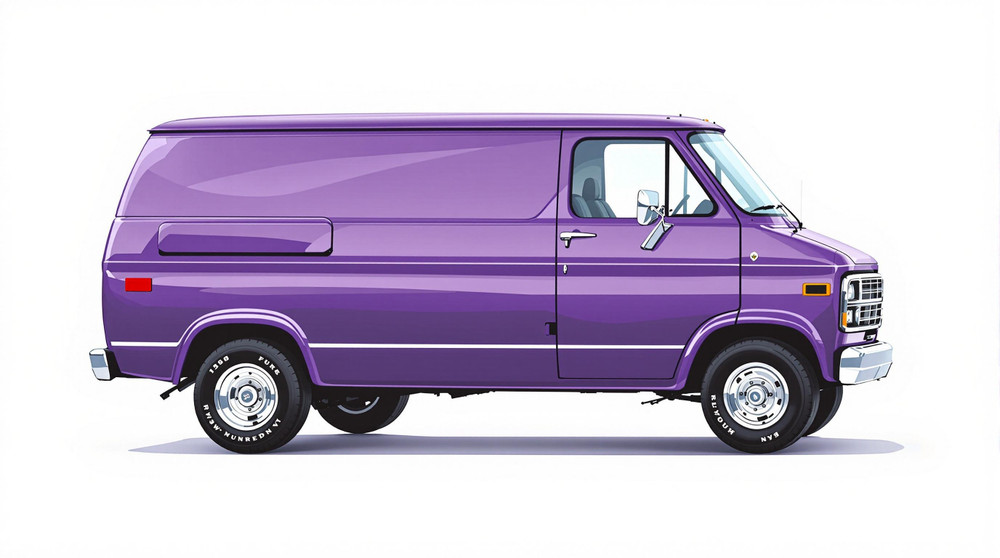Image of 1979 Plymouth Pb300, Note: These illustrations use artistic license and may differ from actual historical models.
Performance Metrics
Fundamental Metrics
Emotional Appeal
MMP Rating
| Engine Specifications | |
|---|---|
| Engine Options: | 318 V8, 360 V8 |
| Displacement Range: | 318-360 cu in |
| Horsepower Range: | 140-180 hp (estimated) |
| Torque: | 230-280 lb-ft (estimated) |
| Compression Ratio: | 8.5:1 (318 V8), 8.4:1 (360 V8) |
| Ignition System: | Electronic ignition |
| Cooling System: | Liquid-cooled |
| Performance Specifications | |
| 0-60 Time: | 12-15 seconds (estimated) |
| 1/4 Mile Time: | 18-20 seconds (estimated) |
| Top Speed: | 85-95 mph (estimated) |
| Transmission and Drive | |
| Drive Type: | Rear-wheel drive |
| Transmission Type: | 3-speed automatic |
| Fuel and Efficiency | |
| Fuel System Type: | Carburetor |
| MPG: | 10-12 mpg (estimated) |
| Dimensions and Brakes | |
| Brakes: | Front disc, rear drum |
| Wheelbase: | 127 inches |
| Weight: | 4,500-5,000 lbs (estimated) |
Note: Specifications for classic cars are given to the best of our ability, considering the limited and variant data available.
Unveiling the Quintessential Workhorse: The 1979 Plymouth PB300 Van
The 1979 Plymouth PB300 Van stands as a testament to the era of robust American utility vehicles, a true workhorse designed for both durability and functionality. Born from the assembly lines of Chrysler Corporation's Plymouth division, this van was engineered to meet the demands of the late 1970s commercial and private sectors. Amidst the backdrop of an energy-conscious America, the PB300 emerged not only as a reliable mode of transport but also as a canvas for customization and personal expression. One intriguing fact about this vehicle is its surprising popularity among custom van enthusiasts, who transformed these vans into rolling pieces of art and luxury lounges on wheels.
Design and Innovation
With its boxy silhouette and utilitarian charm, the exterior of the PB300 was a familiar sight on American roads. Its design was straightforward yet functional, with a prominent grille and round headlights that echoed the design language of its time. Inside, the van offered a no-frills experience with durable materials meant to withstand the rigors of daily use. However, for those who desired more comfort, there were options for customization including plush seating and intricate cabinetry for the burgeoning conversion van market. Technologically, it boasted features like power steering and brakes, which were considered advanced for a commercial vehicle of that era. Color options ranged from classic whites and blues to more vibrant hues that appealed to the era's taste for personalization. The most iconic body style was undoubtedly the cargo van, which served as a blank canvas for businesses and customizers alike.
Historical Significance
The 1979 Plymouth PB300 Van's impact on automotive design may not be revolutionary, but its role in American culture was significant. It bridged a gap between pure utility and personal expression, illustrating the versatility of vans during that period. It stood out from its contemporaries by offering a balance of affordability, reliability, and ease of customization that few other vehicles could match.
Performance and Handling
Performance-wise, the PB300 was not built to break speed records; it was designed to get the job done. With a range of engine options, including robust V8s, it delivered sufficient power for hauling and towing needs. Acceleration was modest, with more emphasis on torque than speed. Handling was as expected for a large van—stable on straightaways but requiring care on curves and windy roads. Drivers could expect a commanding view of the road, accompanied by the distinct rumble of an American V8 under load.
Ownership Experience
Owners of the 1979 Plymouth PB300 Van typically used it as a daily driver for businesses or as a base for creating custom leisure vehicles. Its maintenance and reliability were straightforward, making it accessible for the average owner to repair. The simplicity of its mechanical components meant that many repairs could be done at home with basic tools and knowledge.
Fun Facts
The PB300 has its share of quirks and trivia. For instance, some were converted into campers or even mobile recording studios by rock bands of the era. While it didn't set any speed records, it did hold its own in terms of sales within its segment. Criticisms often focused on its fuel economy and size, but these were common traits for vehicles of its class.
Collector's Information
Today, the 1979 Plymouth PB300 Van holds a unique place in collector circles, particularly among van enthusiasts. While exact production numbers are hard to come by, it's clear that surviving examples in good condition are becoming increasingly rare. As for value, well-preserved models or expertly customized versions can fetch a range of prices, often influenced by nostalgia and the quality of the conversion. It's not uncommon to see prices vary widely from a few thousand dollars for a fixer-upper to tens of thousands for a show-quality custom van.
Conclusion
The 1979 Plymouth PB300 Van may not have been the flashiest vehicle of its time, but its legacy endures through its versatility and the fond memories it created. It served as a reliable workhorse, an artist's canvas, and even a home on wheels for adventurers. This van reminds us that utility can coexist with personality, creating a lasting imprint on America's automotive landscape.
1979 Plymouth Pb300 Catalog of Parts
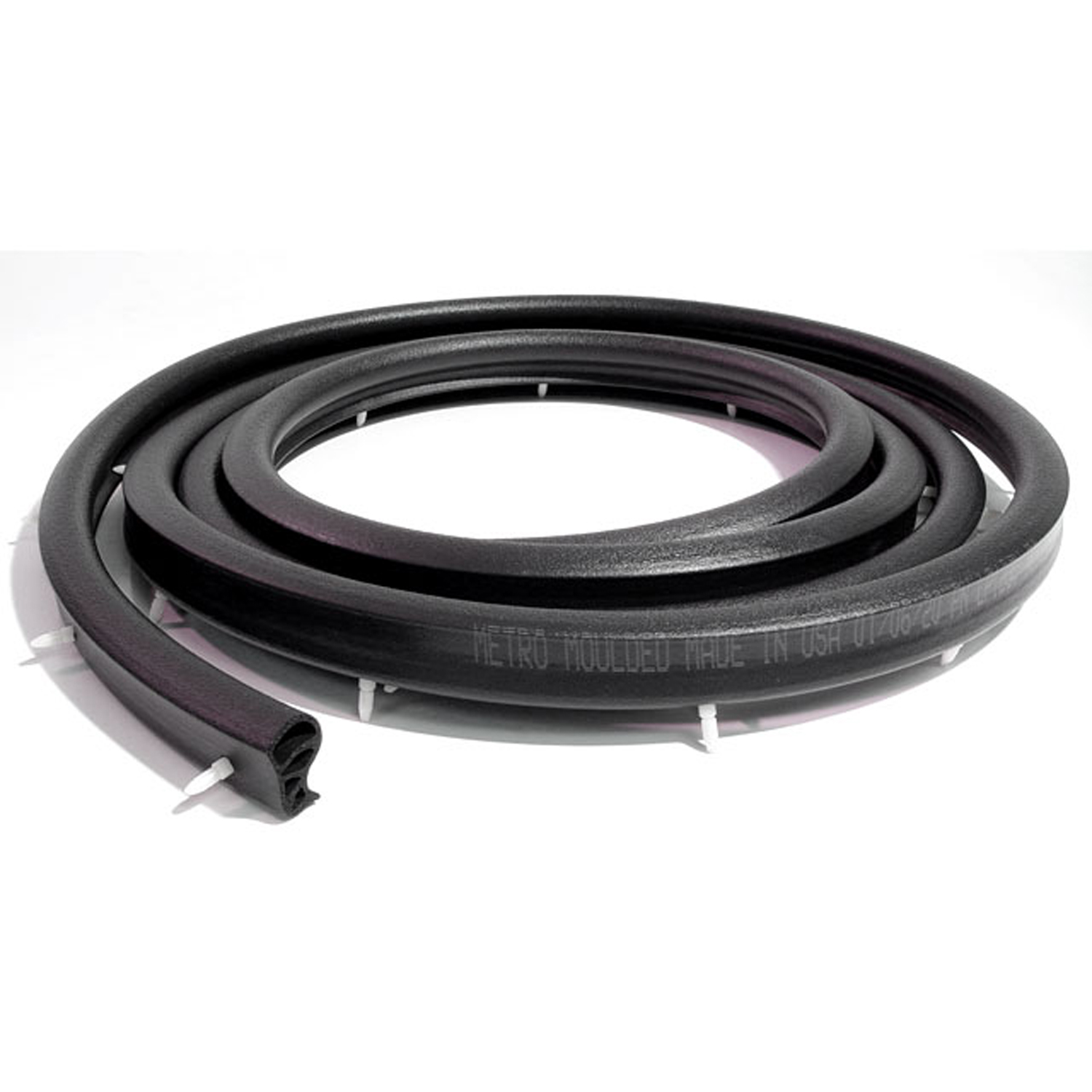 1979 Plymouth PB300 Drivers Side (left) Door Seal. Fits full size vans only-LM 123-VLDrivers Side (left) Door Seal. Fits full size vans only. Each
1979 Plymouth PB300 Drivers Side (left) Door Seal. Fits full size vans only-LM 123-VLDrivers Side (left) Door Seal. Fits full size vans only. Each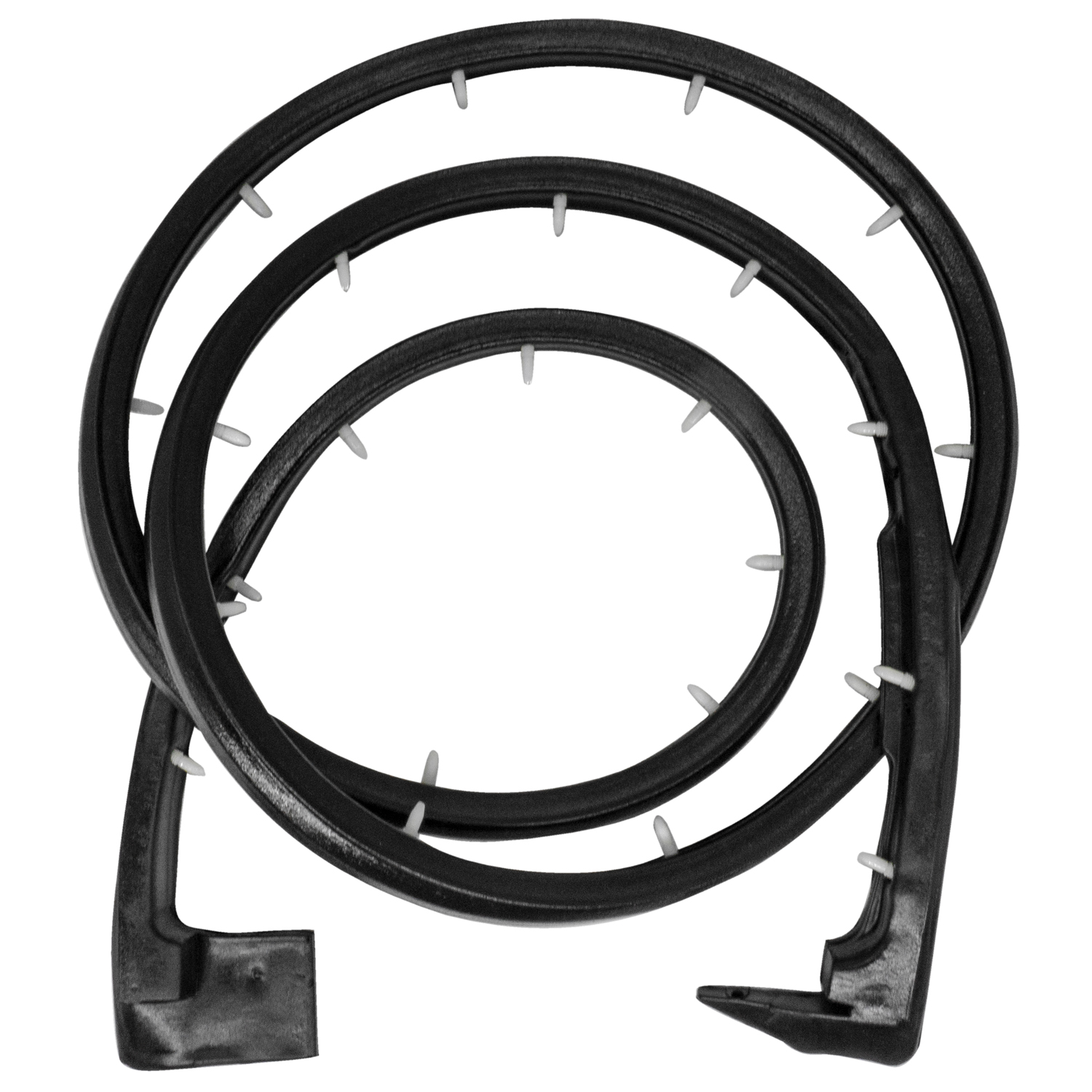 1979 Plymouth PB300 Door Seal, Back Left Cargo, 78-83 Mopar Full Size Van, Each-LM 123-VPDoor Seal, Back Left Cargo, 78-83 Mopar Full Size Van, Each. Replaces OEM # 4087143. Made with Metro’s SUPERsoft Sponge™—our specially formulated soft yet durable EPDM sponge rubber—to protect against the elements. SUPERsoft rubber
1979 Plymouth PB300 Door Seal, Back Left Cargo, 78-83 Mopar Full Size Van, Each-LM 123-VPDoor Seal, Back Left Cargo, 78-83 Mopar Full Size Van, Each. Replaces OEM # 4087143. Made with Metro’s SUPERsoft Sponge™—our specially formulated soft yet durable EPDM sponge rubber—to protect against the elements. SUPERsoft rubber 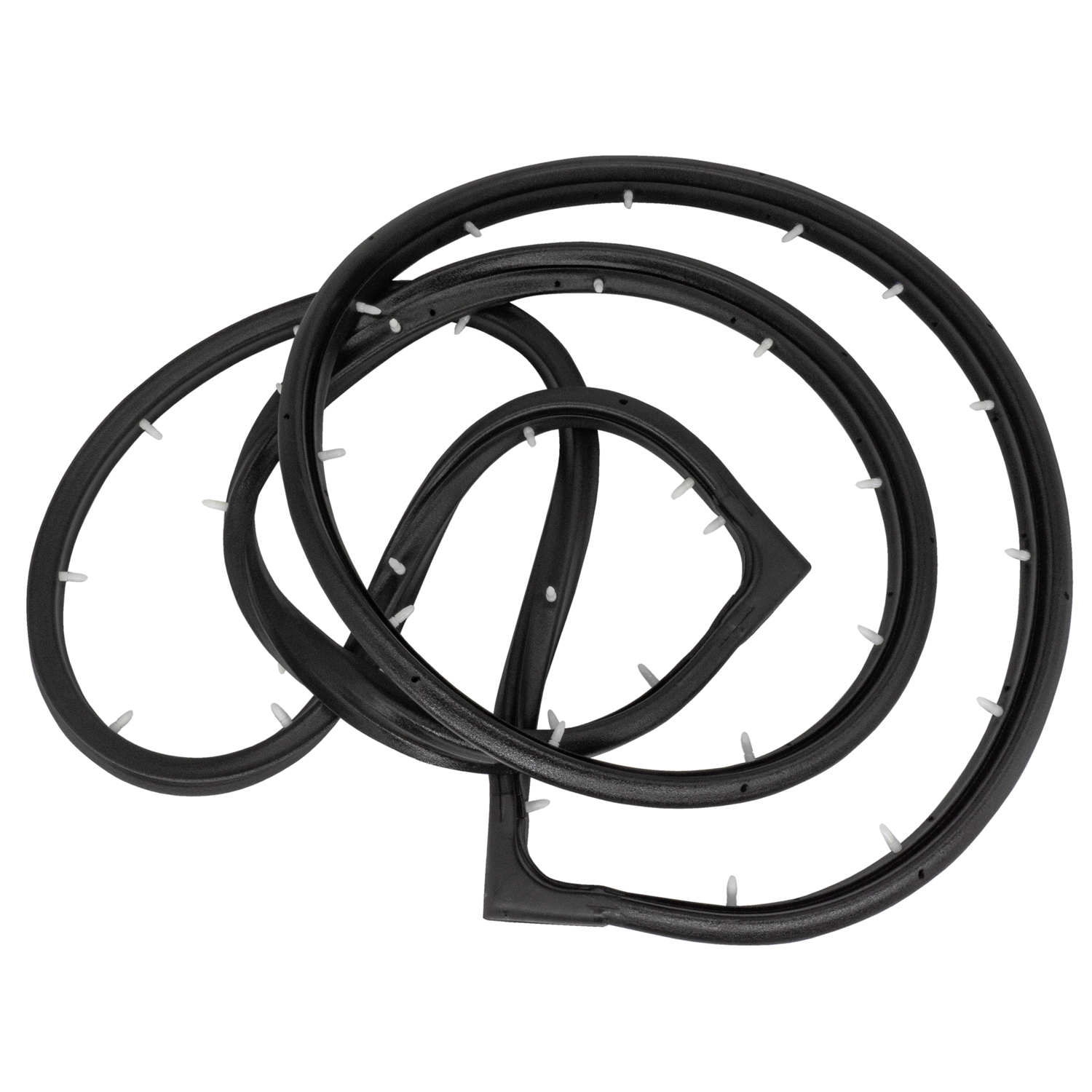 1979 Plymouth PB300 Molded Door Seal, Back Right Cargo, Each-LM 123-VQBack Right Cargo Door Seal for 1978-1983 Dodge B-Series and Plymouth PB-Series Full Size Vans. Replaces OEM # 4087142. Made with Metro’s SUPERsoft Sponge™—our specially formulated soft yet durable EPDM sponge rubber—to protect against the elements. SUPERsoft rubber
1979 Plymouth PB300 Molded Door Seal, Back Right Cargo, Each-LM 123-VQBack Right Cargo Door Seal for 1978-1983 Dodge B-Series and Plymouth PB-Series Full Size Vans. Replaces OEM # 4087142. Made with Metro’s SUPERsoft Sponge™—our specially formulated soft yet durable EPDM sponge rubber—to protect against the elements. SUPERsoft rubber 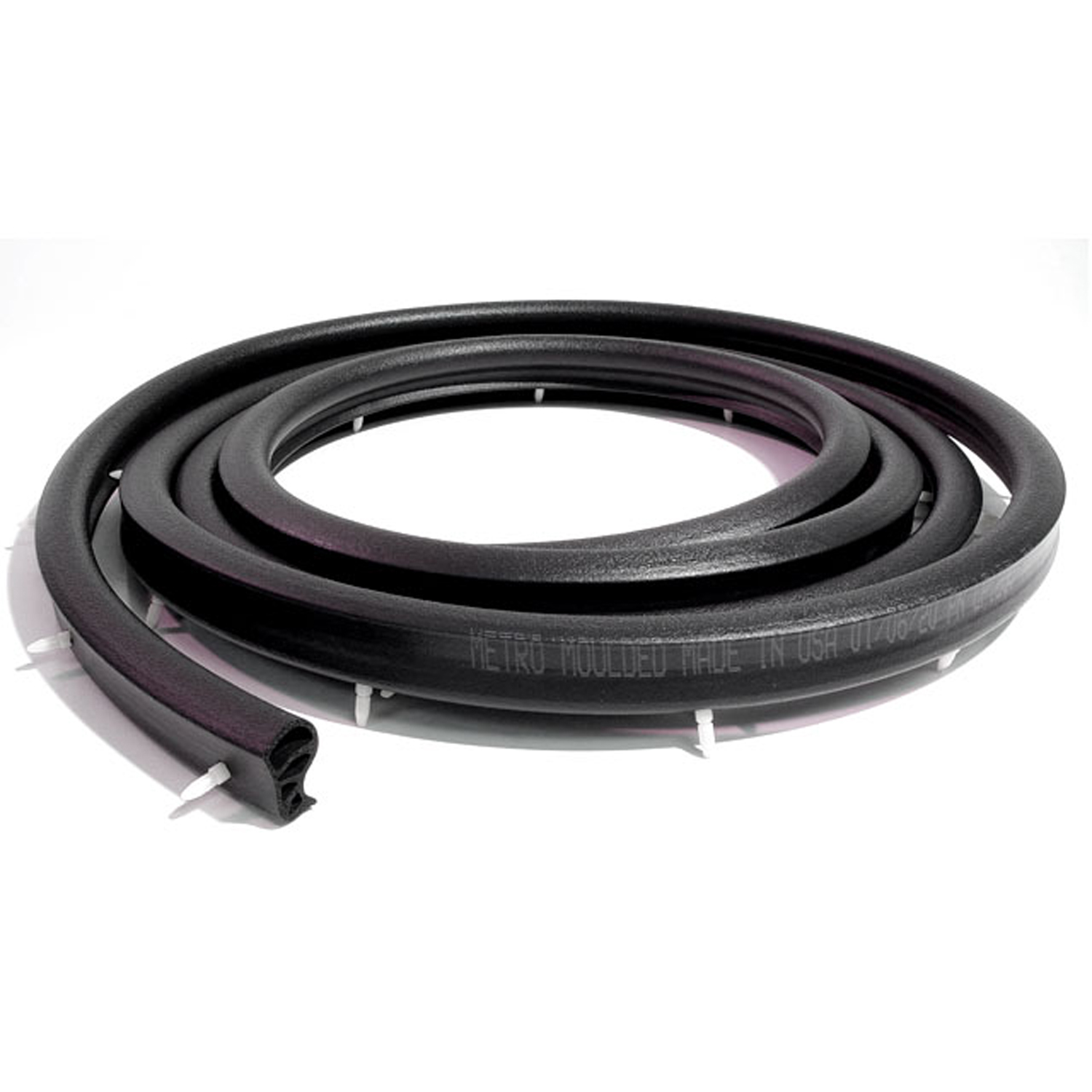 1979 Plymouth PB300 Passenger Side (right) Door Seal. Fits full size vans only-LM 123-VRPassenger Side (right) Door Seal. Fits full size vans only. Each
1979 Plymouth PB300 Passenger Side (right) Door Seal. Fits full size vans only-LM 123-VRPassenger Side (right) Door Seal. Fits full size vans only. Each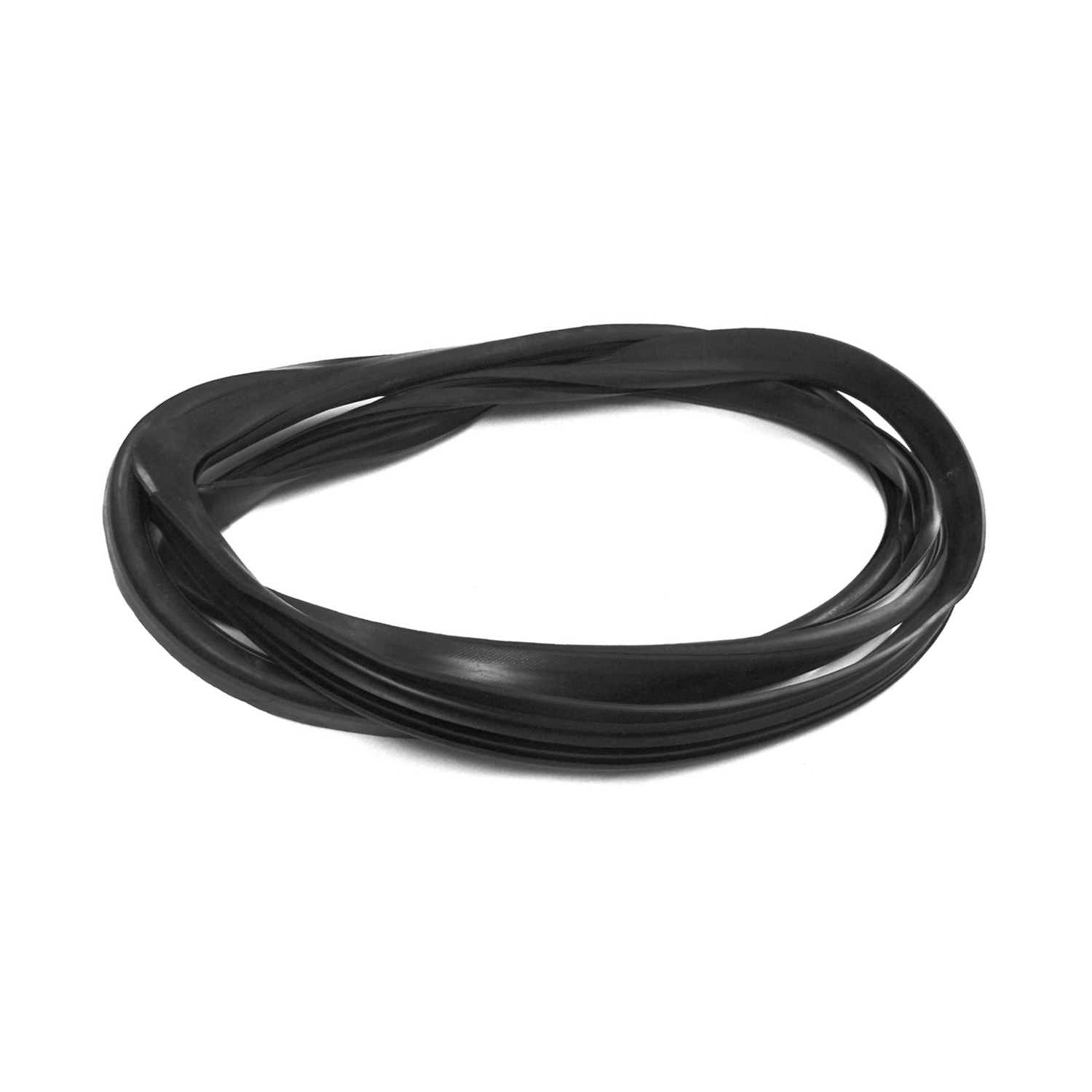 1979 Plymouth PB300 Windshield seal, '71-'93 Dodge/Plymouth B/PB series vans-VWS 2706Windshield seal, '71-'93 Dodge/Plymouth B/PB series vans, with groove for lockstrip, each.
1979 Plymouth PB300 Windshield seal, '71-'93 Dodge/Plymouth B/PB series vans-VWS 2706Windshield seal, '71-'93 Dodge/Plymouth B/PB series vans, with groove for lockstrip, each.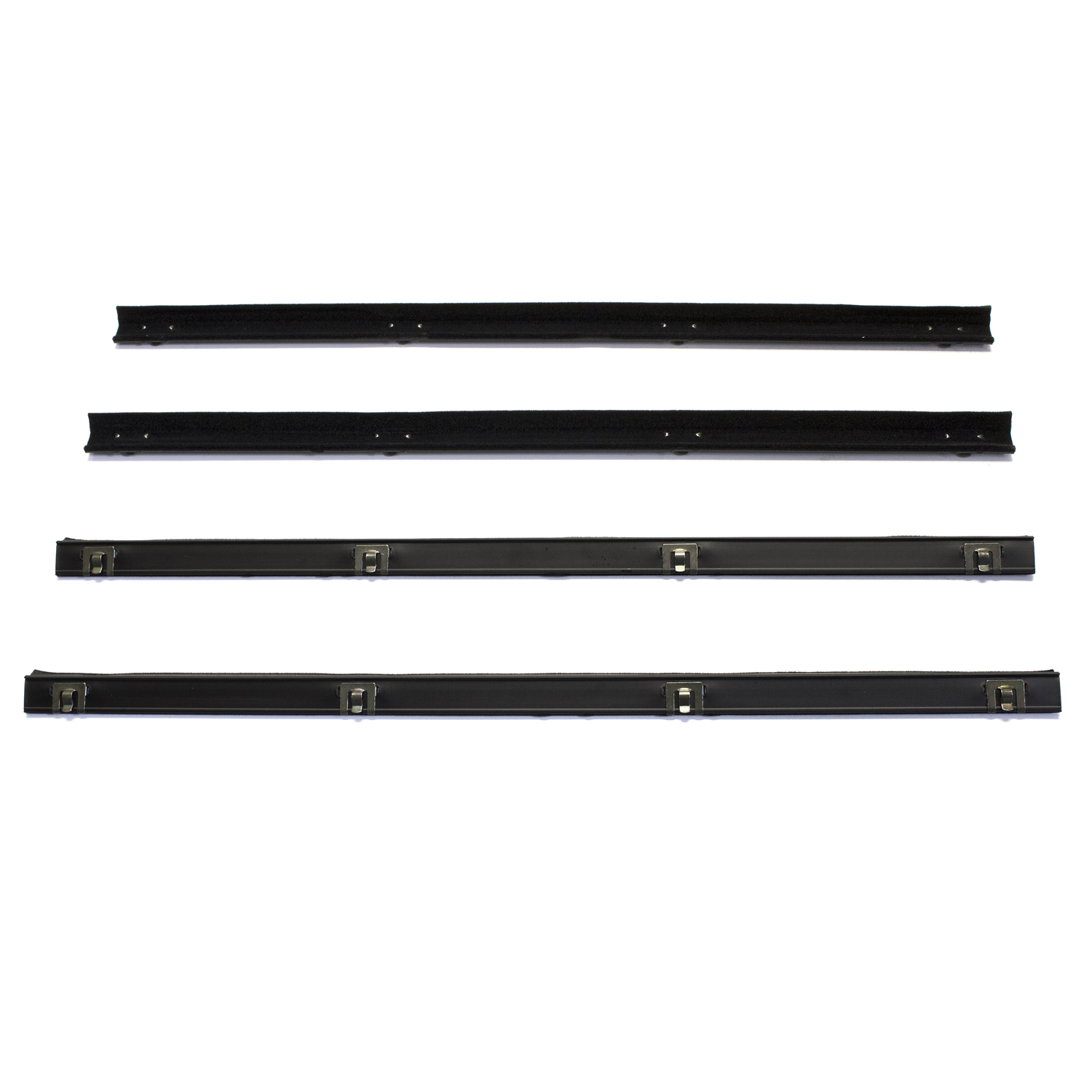 1979 Plymouth PB300 Window Sweeper Kit-WC 4300-01Window Sweeper Kit. Fits '71-'79 Dodge B-series and '74-'79 Plymouth PB-series full size vans. 4-piece kit includes both left-side and right-side inner and outer sweepers. Set. R&L.
1979 Plymouth PB300 Window Sweeper Kit-WC 4300-01Window Sweeper Kit. Fits '71-'79 Dodge B-series and '74-'79 Plymouth PB-series full size vans. 4-piece kit includes both left-side and right-side inner and outer sweepers. Set. R&L.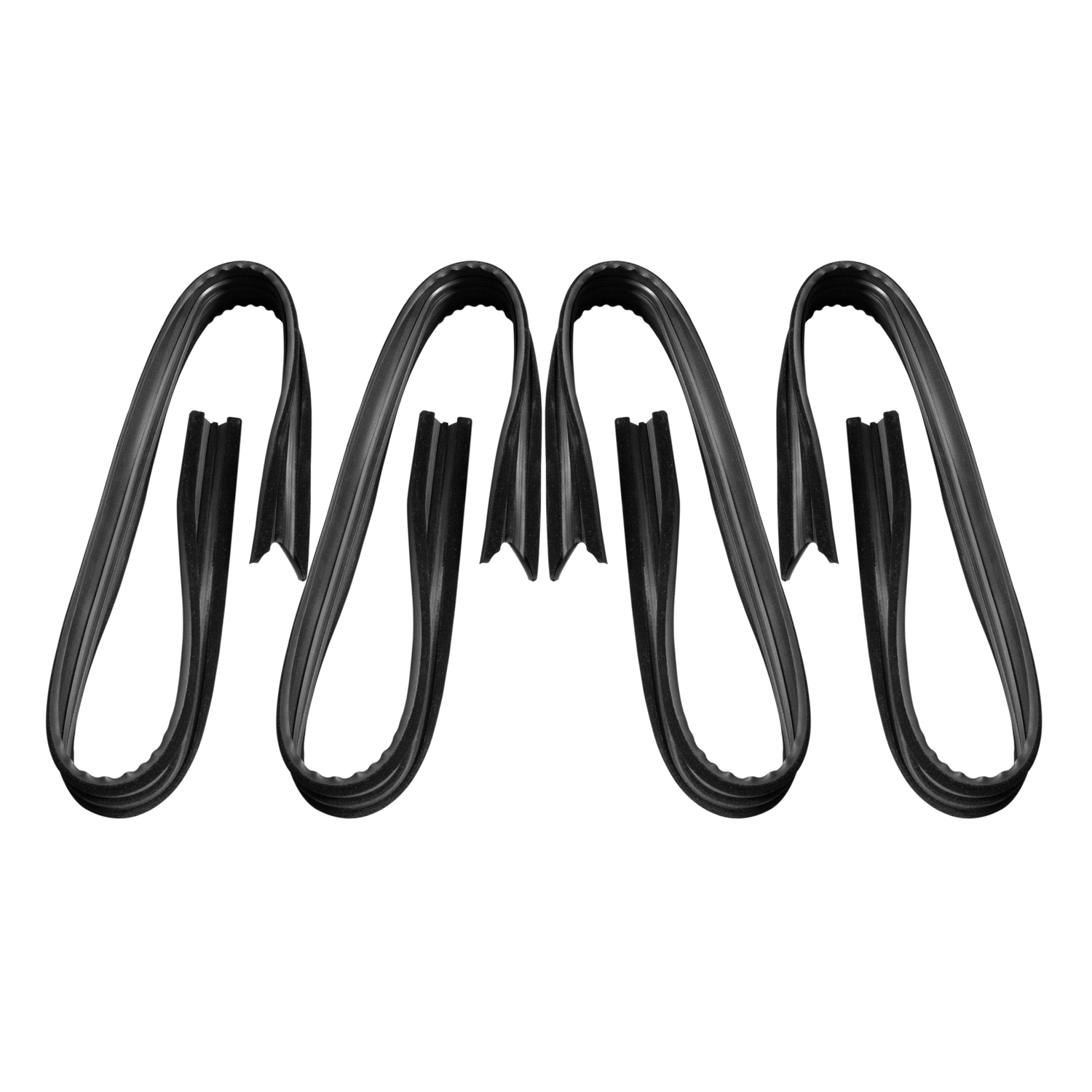 1979 Plymouth PB300 Glass Run Window Channels-WC 4300-02Glass Run Window Channels. Fits '71-'79 Dodge B-series and '74-'79 Plymouth PB-series full size vans. 4-piece kit includes both left-side and right-side front upper and division bar glass run window channels. Set.
1979 Plymouth PB300 Glass Run Window Channels-WC 4300-02Glass Run Window Channels. Fits '71-'79 Dodge B-series and '74-'79 Plymouth PB-series full size vans. 4-piece kit includes both left-side and right-side front upper and division bar glass run window channels. Set.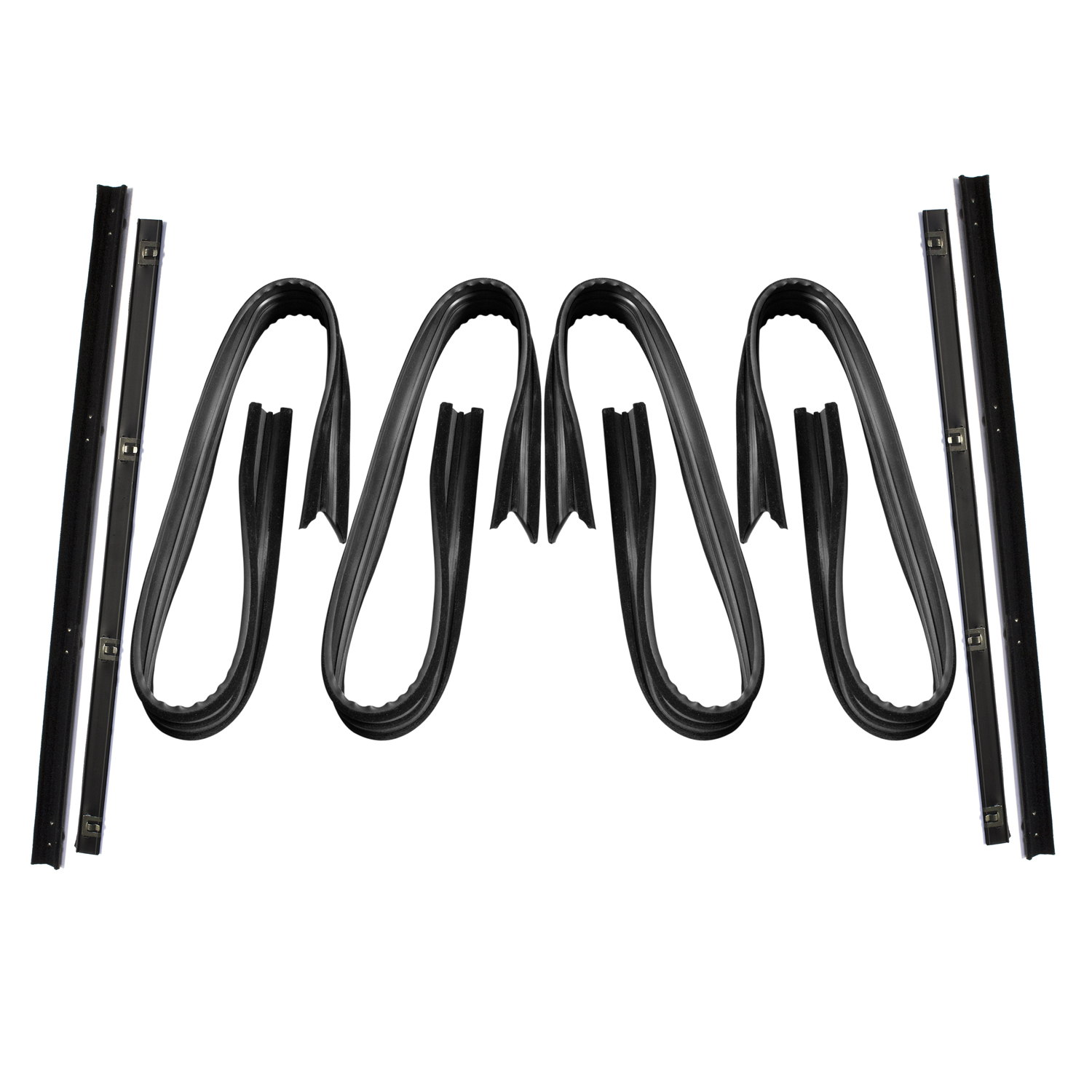 1979 Plymouth PB300 Window Sweepers and Glass Run Window Channels-WC 4300-03Window Sweepers and Glass Run Window Channels. Fits '71-'79 Dodge B-series and '74-'79 Plymouth PB-series full size vans. 8-piece kit includes both left-side and right-side inner and outer window sweepers and front upper and division bar glass run window channels. Combines WC 4300-01 and WC 4300-02. Set. R&L.
1979 Plymouth PB300 Window Sweepers and Glass Run Window Channels-WC 4300-03Window Sweepers and Glass Run Window Channels. Fits '71-'79 Dodge B-series and '74-'79 Plymouth PB-series full size vans. 8-piece kit includes both left-side and right-side inner and outer window sweepers and front upper and division bar glass run window channels. Combines WC 4300-01 and WC 4300-02. Set. R&L.Why Choose Metro?
For over 100 years, Metro Moulded Parts has been the pinnacle of quality in classic car restoration parts. Our commitment to precision and authenticity in every component ensures a perfect fit and an OEM-level appearance.
- Expert Craftsmanship & Quality: Each part is a testament to our dedication to reliability and perfection, crafted from original designs and thoroughly tested.
- Advanced Technology: We use cutting-edge techniques to create flawless, long-lasting parts that surpass others in performance.
- SuperSoft Sponge – The Ultimate Door Seal: Not only are our door seals 30% softer than competitors', but they're also guaranteed to never leak. They effectively reduce wind and road noise, enhancing your classic car's comfort and driving experience.
- Proudly American: Our parts are a product of American craftsmanship, made in the USA with a spirit of excellence and heritage.
- Unrivaled Warranty: We back our products with a 30-year industry-leading warranty, a testament to our confidence in their quality.
Join us in preserving the legacy of classic cars with parts that are crafted for perfection, not just made.

